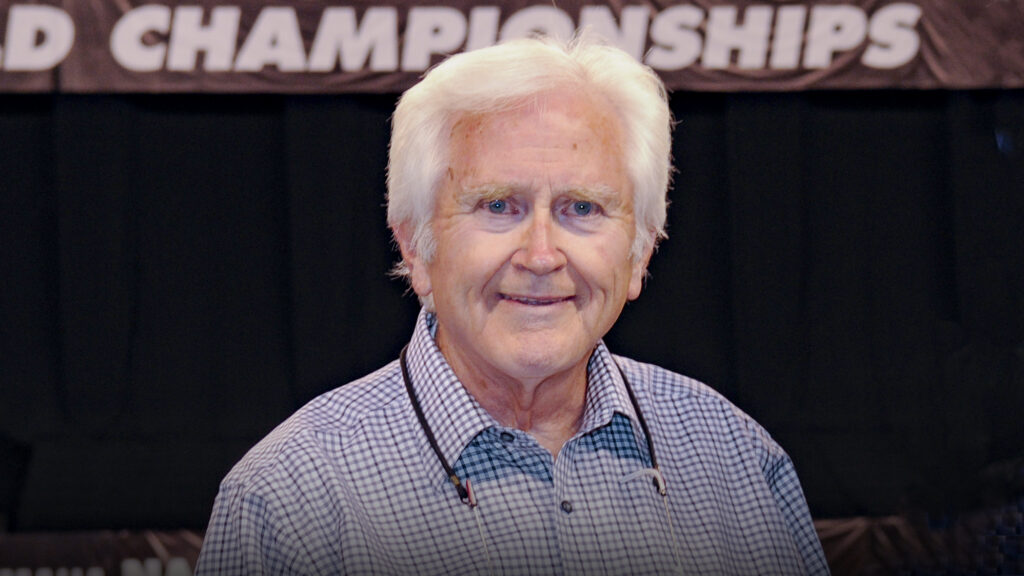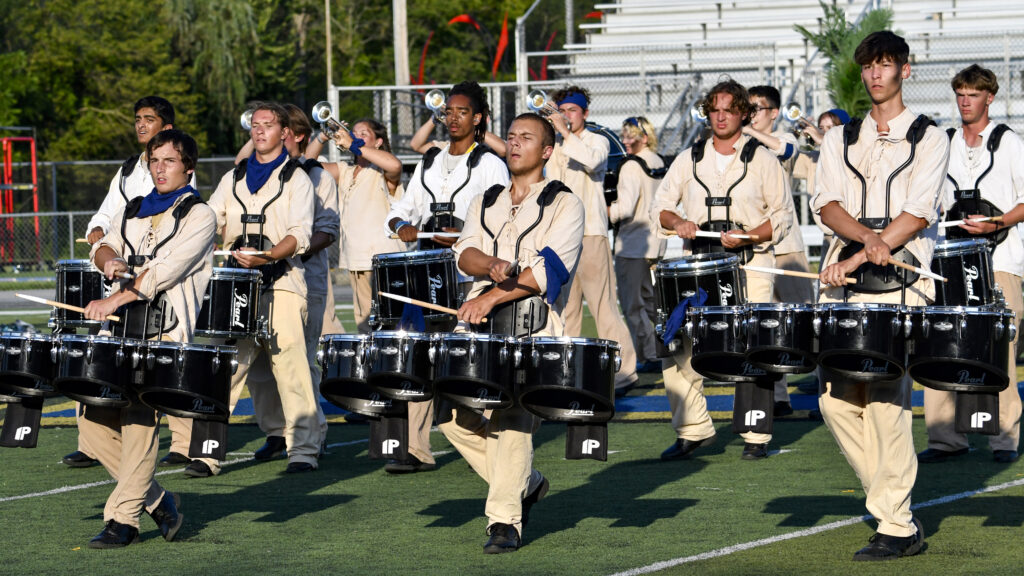We’ve heard from Brian Hogan twice before: Just Another Face in the Line Says, “Thank You” (August 6, 2004) and Tribute to a Humble Genius (May 20, 2005). In this Fanfare, he addresses those trying out for corps who might not make the corps of their first choice, encouraging them not to give up and to look at alternate possibilities of marching with any number of other corps deserving of their interest.
It’s that time of the year again! The holidays? Well yeah, but more importantly, we’ve just gone through audition camp time! I’ve noticed in the past few years that there are a large number of people auditioning for top-echelon Division I corps. Some corps report that they have literally hundreds of kids showing up at audition camps, the kids hoping beyond hope that they will stand out enough to capture the attention of the decision makers for their chosen corps. Yet, when the competitive season comes around, more than a few younger or smaller corps have problems fielding full lineups. If there are so many potential members auditioning for only a few spots, why aren’t all Division I corps and more Division II corps not fielding full corps? I can only conclude that many of those who don’t “make the cut” are returning home to participate in their high school or university music programs, hoping that next year’s round of auditions will yield different results. I realize that mixed in with those auditioning are members of lower-placed Division I and a number of Division II & III corps. I think we have to look at why a person didn’t make it this year. It’s likely a lack of something — talent, age or experience. What can you do to counter these shortcomings? Talent: Unfortunately, there isn’t much we can do about that. At some point we all have to face our limitations and become comfortable in the fact that perhaps our true talent lies elsewhere. Does this mean that you should just throw in the towel? Certainly not. If you truly believe that drum corps is something you really want to do, desire can bridge some of the talent gap. Keep reading, because I have a solution for you. Age: Despite the fact that you can be as young as 14 or 15 and march in a Division I corps, it’s likely that if there are two of you vying for a single position, another person of equal talent who is older will be selected over you. Don’t think that the selectors are discounting your potential. I guarantee that they will keep your name on file for future reference. However, the advantage that the other candidate has over you is maturity and its inherent experience. Read on, I have a solution for you, too. Between talent, age and experience, experience is the only thing you can do something about. If your favorite corps doesn’t select you, how can you possibly get experience? It’s something you get by doing — and, while your scholastic band program may help, marching in a drum corps, to me, is the only way to gain drum corps experience. Here’s my solution: Audition for another corps. The experience you’ll get marching with any corps will be positive for your future endeavors. I can pretty much guarantee that. All of the corps in Drum Corps International, regardless of division or position, are there for the same purpose — to provide the members with the opportunity to learn, compete, have fun and gain the experience of a lifetime. The amount of travel and level of training may vary, but all of the folks involved want to ensure that you get the maximum from your experience (there’s that word again). The directors and managers all have solid plans for the upcoming year, plans that will provide you with many opportunities to do, see and experience things you wouldn’t have been exposed to otherwise. If you can’t make the time or financial commitments to march a Division I corps, then check out your regional Division II & III corps. DCI.org has a listing of them all, with contacts and other info. DCI is pretty good about sharing information between corps. I’m certain that the caption heads for the top corps would be more than happy to recommend another corps program if you don’ fit into their corps. These folks know one another and they also know the up-and-coming instructional talent around the activity. It’s in their interest to see that you get the best possible training, because you might come back with another year’s experience under your belt. Back when I marched, you know, the stone age (120 beats-per-minute and nothing but 120 bpm), instructors were mostly talented former members who wanted to stay with their corps and give back to the activity. Very few had the formal education possessed by today’s staffs. Go to just about any corps’ Web site and check out the staff bios and you’ll likely see post grad degrees in music and music education, as well as education and degrees in the arts. These folks have chosen as their vocations jobs that are tailored toward imparting education and training to you. So, how does this all add up? No matter where you choose to march, you’ll gain valuable experience, have the chance to participate in one of the best activities ever created, have some fun, gain new lifelong friends (I still have a bunch), compete and experience the time of your life. You won’t regret it. If surveyed, I would be willing to bet that when asked what advice current corps members would give to someone thinking about marching, it would be, “DO IT!” If you were auditioning for a Division I corps, you’ve already made the commitment to spend your summer with that particular corps. So, why not just transfer that commitment to another corps?
Michael Boo has been involved with drum and bugle corps since 1975, when he marched his first of three seasons with the Cavaliers.
He has a bachelor’s degree in music education and a master’s degree in music theory and composition.
He has written about the drum corps activity for over a quarter century for publications such as Drum Corps World, and presently is involved in a variety of projects for Drum Corps International, including souvenir program books, CD liner notes, DCI Update and Web articles, and other endeavors. Michael currently writes music for a variety of idioms, is a church handbell and vocal choir director, an assistant director of a community band, and a licensed Realtor in the state of Indiana. His other writing projects are for numerous publications, and he has published an honors-winning book on the history of figure skating. His hobbies include TaeKwonDo and hiking the Indiana Dunes. But more than anything, Michael is proud to love drum corps and to be a part of the activity in some small way, chronicling various facets of each season for the enjoyment of others.





